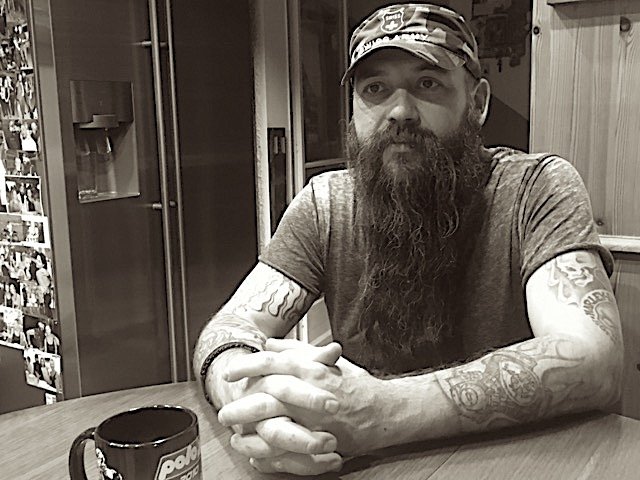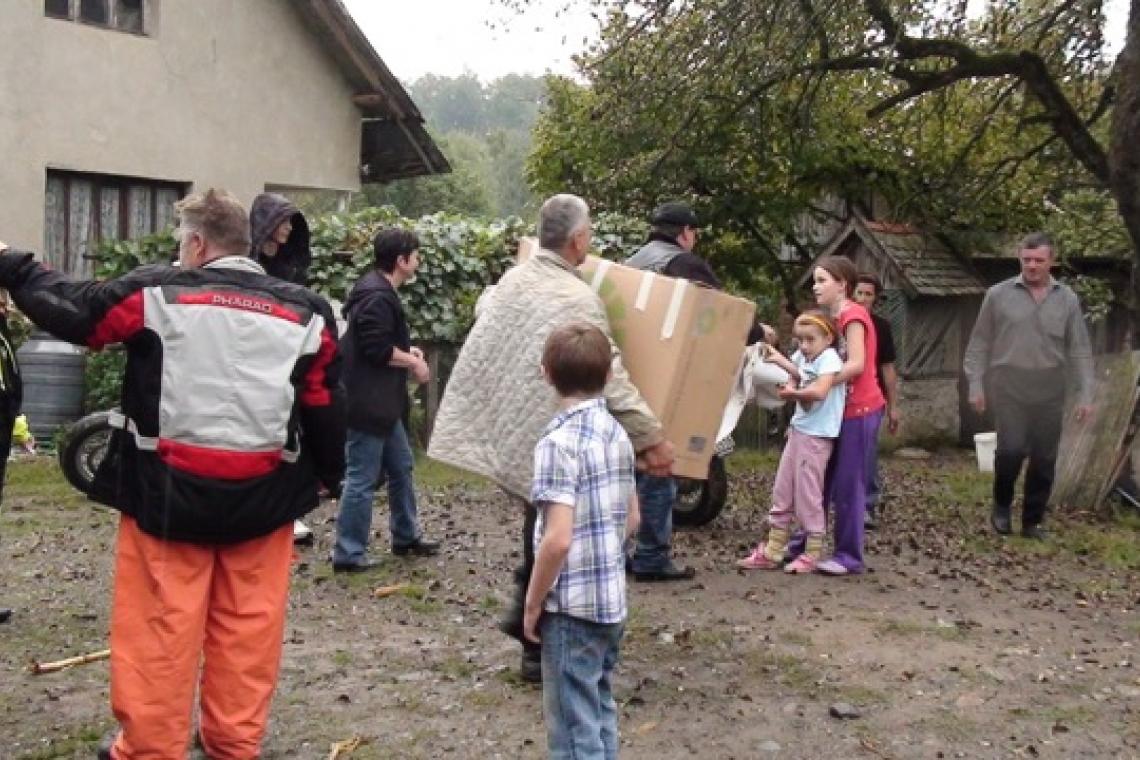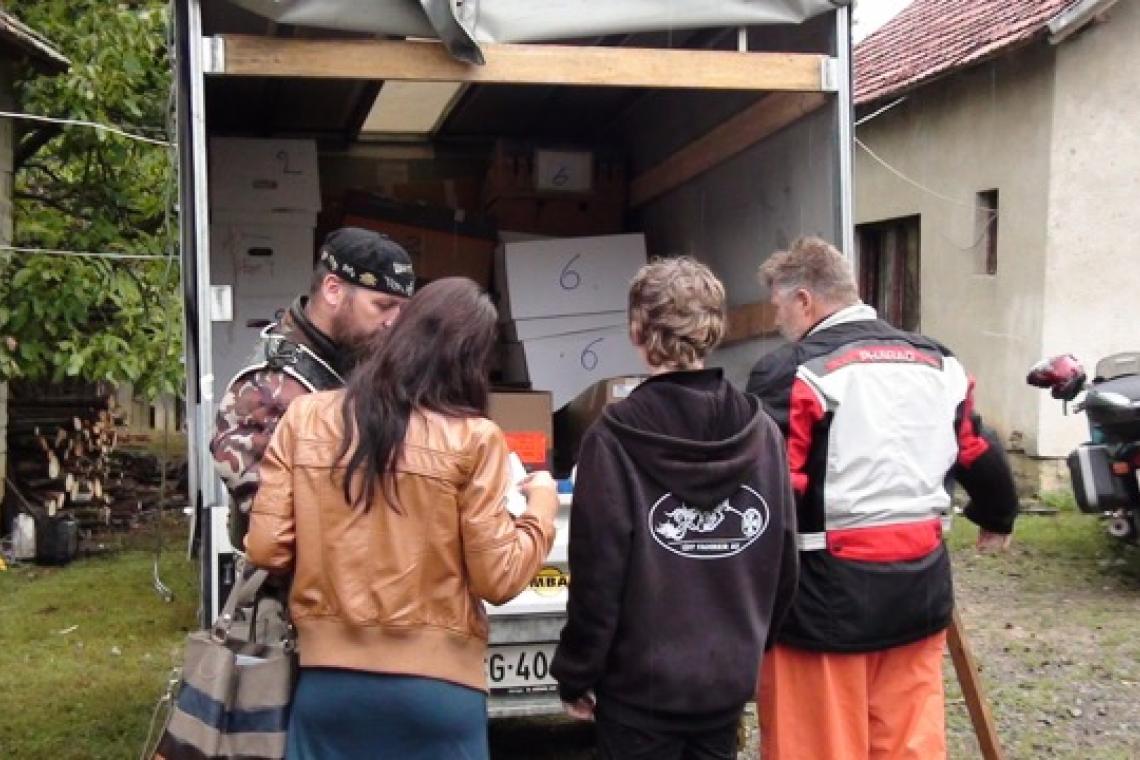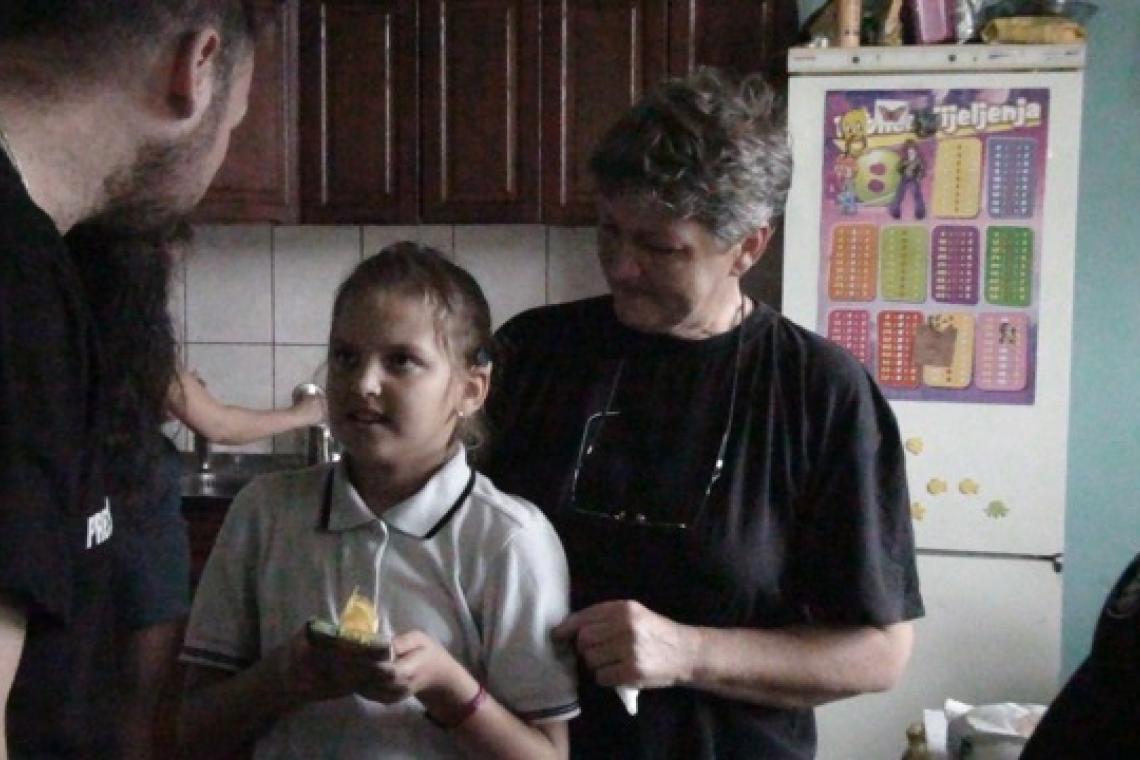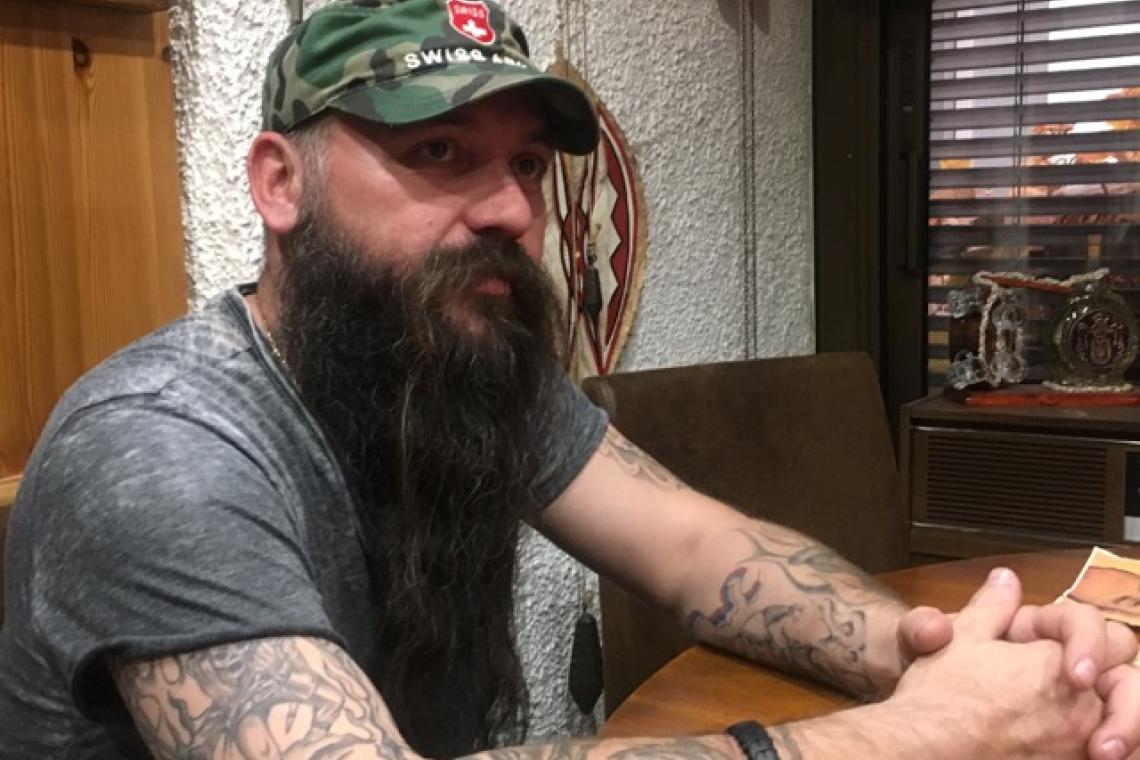''I know that I have a striking appearance and that I might seem dangerous, well, not that I am not'', Miki is laughing, ''but I am only a man and my spouse and I would like to help people in Bosnia and Herzegovina''. Miki is really a biker and the president of the motor club Töff Fahrer AU, which was established in 2011 and in which both his spouse and his sons are engaged. They all drive motorcycles! The whole family is also active in the martial arts centre Rheintal/Esdo in St. Margreten, which Miki established in 1999 and which has 90 members from 18 countries. ''Both clubs are contributing to my humanitarian actions and they are always willing to lend a hand in the preparation and delivery of assistance to Bosnia'', says Miki, who likes to talk about his clubs and his friends, bikers and sportsmen, and who does so with pride.
Organic production of medicinal herbs
In October 2017, Miki initiated a project involving organic cultivation of aromatic and medicinal herbs in Bosnia and Herzegovina, together with the company Appenzeller BIO Kräuter GmbH, whose owners, Petra and Maurus Dörig, are his long-time friends. ''Their company engages in the cultivation of medicinal herbs'', explains Miki, ''and they do not use any artificial methods, they do not even water the plants. The herbs are used for the Appenzeller cheese, cosmetic industry, etc. I put them in touch with a family from Kijevac, near Bosanska Gradiška, which includes four generations and they all live in a small house. They truly needed help and they wanted to work''. Miki made it possible for the family Blesić to use a meadow of 5000 m2for the organic production of medical herbs free of charge, and the company Appenzeller BIO Kräuter GmbH is transferring their know-how and supervising the planting, cultivation and harvesting. This company is buying herbs from the family Blesić, which therefore has a good income. Given the fact that the business is going well and developing fast, the Blesićs are planning to hire new workers from the neighbouring villages.
Miki Stojnić works as an electrician at the company ElektroFrei Rheintal AG, St. Gallen Canton. He came to Switzerland in 1988 as a 14-year-old boy. ''It was a traumatic experience for me. My parents worked in Appenzeller, Switzerland, and I was back home in Bosanska Gradiška. They literally took me out of the 8th grade and took me to Switzerland fully unprepared. That was a cultural shock for me! I refused to look out of the window for days on end, I only wanted to go back home. It was very difficult for me and I could not accept it. It seems that I never will. Maybe that is the reason why I have such a strong bond with Gradiška and Bosnia and maybe that is why I have such a wish to help persons in Bosnia and Herzegovina and do something useful for them''.
Bikers organise humanitarian aid
Miki and his wife Svetlana ensured equipment for schools in Doboj, Velika Kladuša and Bosanska Gradiška, school benches, blackboards, school furniture, work materials, computer equipment, etc. They also procured and transported all necessary equipment for several hospitals in Bosnia and Herzegovina, such as beds, night tables, chairs, sanitary and hygienic material. In case of Teslić municipality, they ensured a fire truck and an ambulance. ''I would not be able to do this without the assistance and support of my spouse Svetlana. And my children also participate in all activities that we organise in Bosnia and Herzegovina. We like to socialise, have met many persons and got into contact with many Swiss people, but also our people. However, it took years to build all of this''.
Miki and Svetlana are continuously organising both small and big humanitarian actions for Bosnia and Herzegovina, working relentlessly on raising of funds and materials needed by the poorest. ''You know, it is not simple to organise all of this, because trucks transporting humanitarian aid are stopped all the time and the goods can get lost or reduced in the process of transport. The principle I apply is to deliver the goods personally and directly to the intended address''.
The whole family Stojnić in particular remembers the humanitarian action organised for the 10 poorest families in Potkozarje near Bosanska Gradiška in October 2012. Together with the local Red Cross, they got a list of the poorest households and they organised activities with their friends from the motorcycle club in order to raise funds, gather clothes, shoes, sanitary items and kitchen appliances. They put the whole material on motorcycles and trailers, and the motorcade of 20 bikers started their journey to Gradiška. ''It was a long road, it was cold, raining all the time, we continuously slipped, fell down, froze to death. I even overturned. We went to every house and handed over the goods. It is difficult to imagine, but those families truly have nothing. We also bought many staples at local stores, such as flour, oil, etc., in order for local salesmen to also earn something''.
In this action, Miki was in particular touched by the story of a girl, Anja Stanić: ''It is a sad story, she has no parents. The girl is deaf, and her grandmother only asked us, if we could get batteries for her hearing aid, so she could hear. I still take care of that girl, she was born in the same year as my daughter, and she is almost like a family member for us''.
Miki continues talking about this humanitarian action: ''A pink glove fell out of a box, and there was a boy who took the glove, put it on and started running and yelling, 'I finally have a glove!'I told him that the glove was for his sister, and that there was another pair of gloves for him, but he continued yelling, 'No, I am not letting it go, I am not giving you the glove, I will not freeze anymore, it has all the fingers!' Only after I gave him his pair of gloves, he gave his sister the pink glove. All these hard rockers that were there with me were crying like children. The Swiss were shocked by the poverty, and I was shocked as well. They truly did their best and it was so emotional…''
The most recent project that Miki is implementing involves equipment for a school in Podgradci, near Bosanska Gradiška, and equipment for a hospital in Bosansko Grahovo, which was supported by hospitals from St. Gallen, Appenzeller and Jura.
Motivation and appeal for joint work
When asked where he finds the motivation for such a great engagement, Miki answers: ''I have to admit that I am also a bit tired. I was advised to slow down a bit and take a one-year break, because it is very difficult to maintain such a dynamic. And that is what I decided to do, but … something was burning in me, because I cannot accept that people suffer so much. You know, I have enough, I have everything I need, we all even have too much. I somehow feel restless… And when you see how happy people are when a project succeeds, you cannot just stop and dedicate yourself only to yourself''.
Miki and his spouse are planning to move to Bosanska Gradiška someday, where they have a holiday home: ''We go there three to four times a year. Everyone is coming there to see us, we socialise and enjoy. I would leave yesterday'', Miki is laughing.
Miki's actions have inspired many persons to start organising humanitarian aid themselves, and they are continuously contacting him to ask for advice and contacts. However, Miki believes that the diaspora of Bosnia and Herzegovina should be more active and engage together: ''I would ask everyone, whether they have enough or maybe even too much? Why aren't there more people participating in joint humanitarian actions? We have so many of our people in Switzerland – why shouldn't we get organised and do more? So much can be done, sometimes even without any costs. There are persons that individually help some families or bear school costs for some children. That is good, but we should do more together on projects, such as schools and hospitals, so that more persons and families can benefit from it''.
Links:
Appenzeller Bio Kräuter GmbH, the project in Bosnia and Herzegovina
Martial Arts Sports Centre Rheintal
Media articles:
https://rheintaler.ch/artikel/bosnische-schulen-aufbauen-geholfen/6478#
https://www.tagblatt.ch/ostschweiz/rheintal/kampfsport-leuchtendes-schwarz-ld.257465
https://vesti-online.com/NASI-LJUDI/Svajcarska/703237/Krevete-utovarivali-i-Svajcarci

